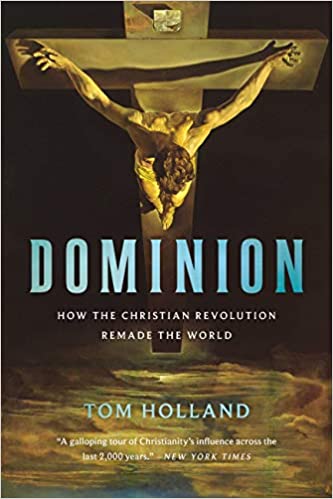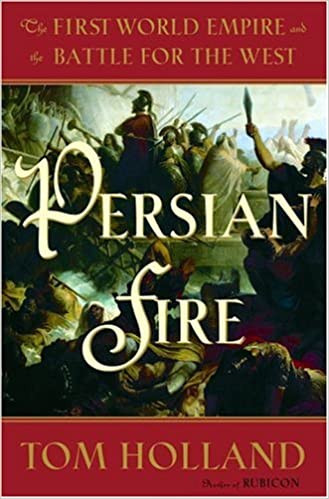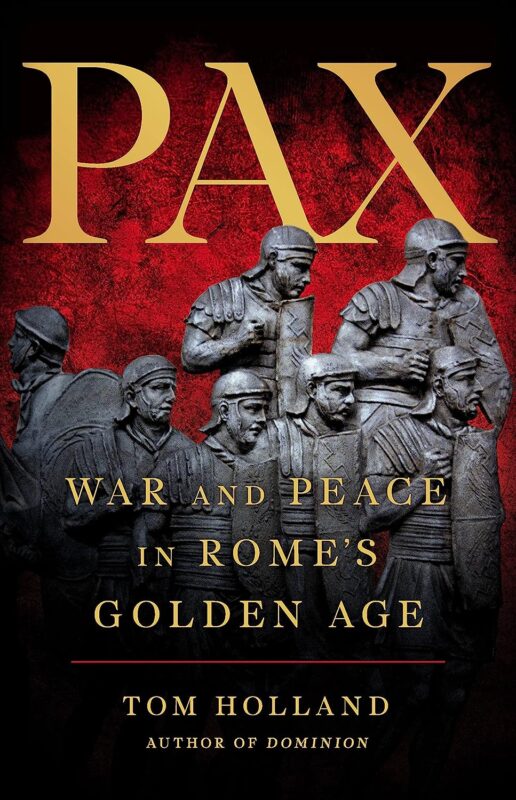Dominion
Crucifixion, the Romans believed, was the worst fate imaginable, a punishment reserved for slaves. How astonishing it was, then, that people should have come to believe that one particular victim of crucifixion -- an obscure provincial by the name of Jesus -- was to be worshipped as a god. Dominion explores the implications of this shocking conviction as they have reverberated throughout history. Today, the West remains utterly saturated by Christian assumptions. As Tom Holland demonstrates, our morals and ethics are not universal but are instead the fruits of a very distinctive civilization. Concepts such as secularism, liberalism, science, and homosexuality are deeply rooted in a Christian seedbed. From Babylon to the Beatles, Saint Michael to #MeToo, Dominion tells the story of how Christianity transformed the modern world.
More info →Persian Fire: The First World Empire and the Battle for the West
In 480 B.C., Xerxes, the King of Persia, led an invasion of mainland Greece. Its success should have been a formality. For seventy years, victory—rapid, spectacular victory—had seemed the birthright of the Persian Empire. In the space of a single generation, they had swept across the Near East, shattering ancient kingdoms, storming famous cities, putting together an empire which stretched from India to the shores of the Aegean. As a result of those conquests, Xerxes ruled as the most powerful man on the planet. Yet somehow, astonishingly, against the largest expeditionary force ever assembled, the Greeks of the mainland managed to hold out. The Persians were turned back. Greece remained free. Had the Greeks been defeated in the epochal naval battle at Salamis, not only would the West have lost its first struggle for independence and survival, but it is unlikely that there would ever have been such an entity as the West at all.
Tom Holland’s brilliant new book describes the very first “clash of Empires” between East and West. As he did in the critically praised Rubicon, he has found extraordinary parallels between the ancient world and our own. There is no other popular history that takes in the entire sweep of the Persian Wars, and no other classical historian, academic or popular, who combines scholarly rigor with novelistic depth with a worldly irony in quite the fashion that Tom Holland does.
More info →Pax: War and Peace in Rome’s Golden Age
The Pax Romana has long been shorthand for the empire’s golden age. Stretching from Caledonia to Arabia, Rome ruled over a quarter of the world’s population. It was the wealthiest and most formidable state in the history of humankind.
Pax is a captivating narrative history of Rome at the height of its power. From the gilded capital to realms beyond the frontier, historian Tom Holland shows ancient Rome in all its glory: Nero’s downfall, the destruction of Jerusalem and Pompeii, the building of the Colosseum and Hadrian’s Wall, the conquests of Trajan. Vividly sketching the lives of Romans both ordinary and spectacular, from slaves to emperors, Holland shows that Roman peace was the fruit of unprecedented military violence.
A stunning portrait of Rome’s glory days, this is the epic history of the Pax Romana.
More info →




